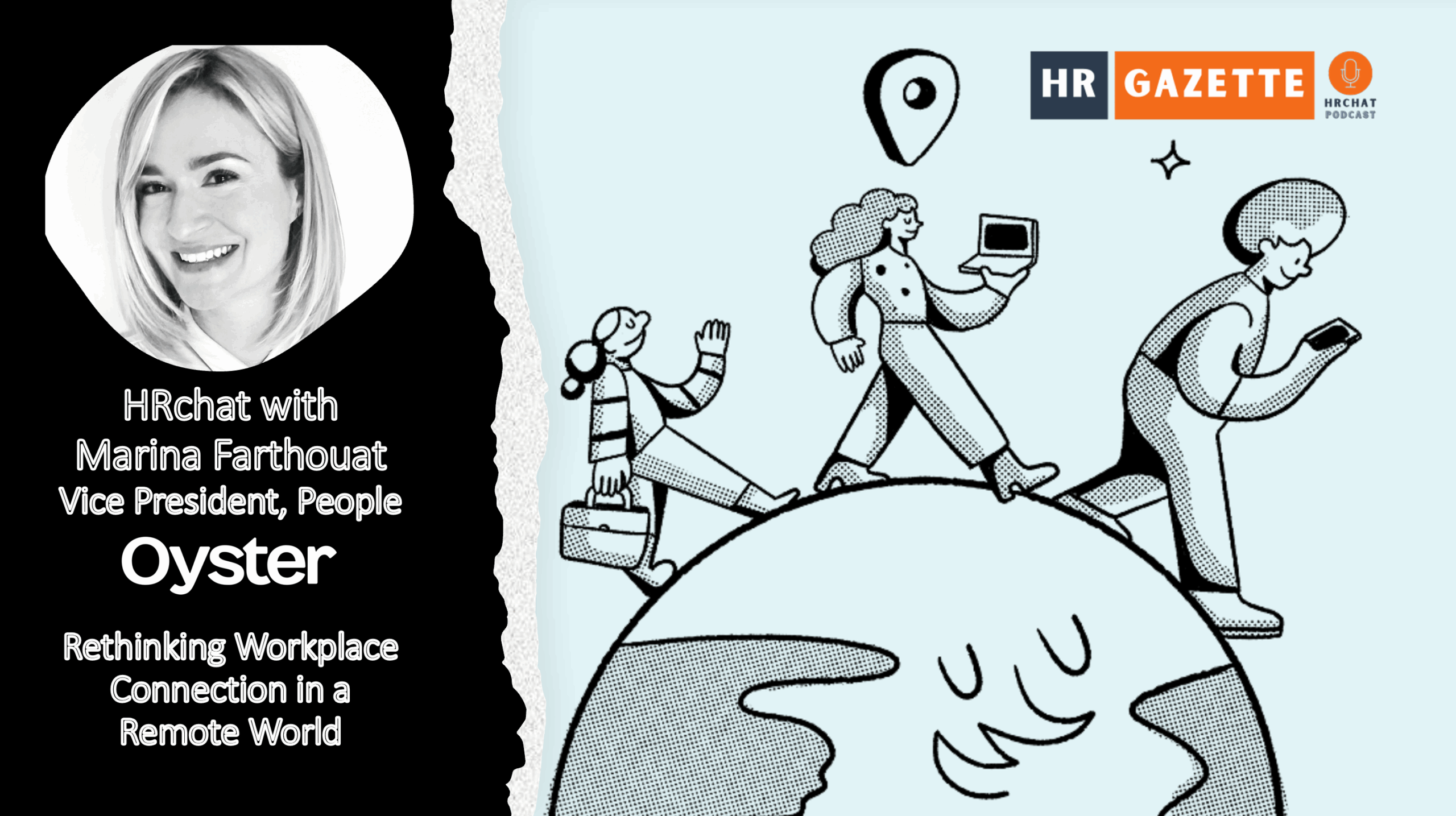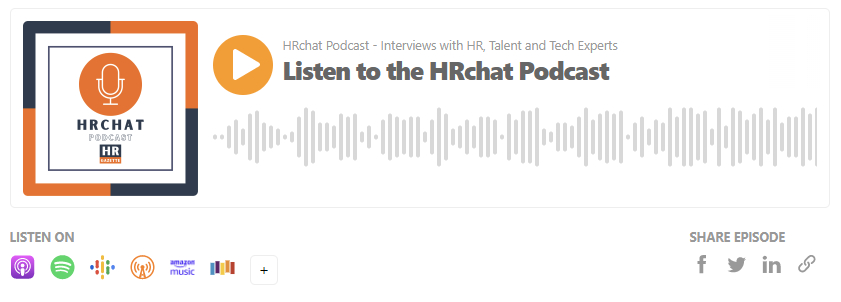
In HRchat episode 817, I talk with Marina Farthouat, the new Vice President, People at Oyster—the global employment platform that enables companies to hire, pay, and care for distributed teams.
Marina leads the company’s people strategy with a focus on building a human-centric, inclusive, and sustainable culture across a global workforce. She brings a wealth of experience leading People functions in remote organizations, most recently at ClickHouse and Elastic. Marina has developed deep expertise in employee engagement and organizational development, as well as in building strong cultures and scaling global companies at speed.
Marina brings a refreshing perspective to the HRchat pod about transforming workplace norms through remote and distributed teams. Drawing from her diverse background spanning investment banking to startups, Marina shares why her most connected workplace experiences have consistently been in remote organizations.
“Talent doesn’t have a nationality,” Marina asserts, challenging traditional location-based hiring approaches. She makes a compelling case for distributed teams as both a talent strategy and a resilience measure. When recent blackouts hit Spain and Portugal, Oyster’s globally distributed workforce demonstrated exactly this kind of operational continuity—shifting activities seamlessly to unaffected regions.
By the way, if you enjoy this conversation and want to learn more about Marina’s team and some of the people challenges they tackle, check out episode 338 with Oyster Co-founder Jack Mardack.
Questions for Marina include:
- How are hybrid organizations leveraging global talent, and what’s the key to engagement in this environment?
- In a recent LinkedIn post, you shared: “London Mayor Sadiq Khan has raised concerns about the impact of remote work on the city, suggesting it is ‘hollowing out’ London and advocating for a return-to-office approach.” What’s your take on the benefits of remote work for employees?
- Follow-up: Connectivity is a challenge for many organizations when workers are remote. How can HR and People leaders ensure global, remote employees feel integrated, supported, and part of the company culture?
- In another recent LinkedIn post, you wrote: “In light of rising tariffs, it’s clear that economic uncertainty is here to stay. The best way to create resilient companies is to distribute talent globally. For People teams, crisis management isn’t just about reactive measures—it’s about building resilient organizational structures.” Why isn’t modern crisis management just about having a plan B? Why is it about building geographically diverse teams that are resilient to global challenges from the outset?
- Follow-up: Can you offer some practical tips for leaders? (For example, Diversify workforce locations to mitigate regional economic impacts / Optimize workforce costs through strategic global talent acquisition / Build flexible team structures that can adapt to rapid change).
- In 60 seconds or less, how do you see the future of HR tech shaping up—and where does Oyster fit into that vision?

